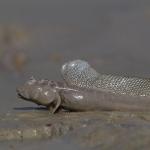Occurs as a result of colds and otolaryngological diseases. However, in some cases, an unpleasant smell from the nose may appear. What does this symptom indicate and how to treat it? This will be discussed in this article.
A bad smell from the nose can be a sign of purulent sinusitis
The smell from the nasal cavity may indicate various pathologies. Usually, this phenomenon indicates purulent or infectious processes occurring in the respiratory tract.
In some cases, the smell may indicate the presence of foreign objects in the nose. Most often, this condition occurs in pediatric patients.
Experts say that the following diseases can provoke a fetid odor from the nose:
- . This is a disease in which an inflammatory process occurs in the paranasal sinuses. Other signs of sinusitis are headache, dizziness, purulent discharge from the nasal cavity.
- Rhinitis in acute form. In this condition, the mucous membrane becomes inflamed, and purulent discharge appears in the nose.
- Infections resulting from exposure to pathogenic bacteria. In this case, the smell is periodic.
- Parosmia. For such a pathology, a disturbed sense of smell is considered characteristic. In this case, the patient has a bad sense of smell. A person usually complains of a putrid odor. This disease is most often a complication of certain diseases.
- Perhaps the appearance of stench as a result of rhinoscleroma, adenoiditis.
In addition, a bad smell from the nasal cavity is due to Ozena. So called fetid runny nose or atrophic rhinitis. This pathology occurs very rarely and the causes are not fully understood. It is believed that the factors that result in the development of the disease include a genetic predisposition.
In this case, inflammation occurs not only in the nasal mucosa, but also in the tissues of the bones and cartilage of the nose. Crusts begin to form in the nasal cavity, due to which an unpleasant odor appears.
You can learn more about the causes of bad breath from the nose from the video:
Factors that contribute to bad breath include:
- Weakened immune system.
- Unbalanced and poor nutrition.
- Diseases of the nose.
- Living in an ecologically unfriendly environment.
- Operational intervention.
- Constant contact with allergens.
- Lack of vitamins in the body.
- Unfavorable living conditions.
- Violation of hygiene rules.
In rare cases, a bad smell can appear as a result of diseases of the endocrine, digestive and nervous systems, pathologies of the kidneys, bones and joints.
What to do, which doctor to contact?

It is important to remember that if there is an unpleasant smell from the nose, you should consult a specialist. This is because such a symptom may indicate various serious diseases. In addition, under this condition, the development of undesirable consequences is possible.
First of all, you should contact, who will conduct an examination and give a direction for the passage of the necessary diagnostic methods. Computed tomography, endoscopic examination, culture tests, and others may be needed.
If the suspicion of an otolaryngological disease is not confirmed, then consultation of the following specialists may be required:
- Therapist
- Pulmonologist
- Gastroenterologist
- Endocrinologist
- Neurologist
- Neurologist
After the diagnosis is made, an appropriate treatment regimen is selected, which takes into account the individual characteristics of the organism and the nature of the course of the disease.
Medical treatment

First of all, treatment is aimed at eliminating the underlying disease. Therapy consists in the use of the following groups of medications:
- Antibacterial agents of the macrolide, penicillin, cephalosporin series: Roxithromycin, Ampicillin, Ampiox, Cefalexin, Cefuroxime, Ceftibuten. Antibiotics that have a local effect, such as Fusafungin, may be used.
- Herbal medicines, for example.
- Antihistamines: Tavegil, Suprastin.
- antiseptic solutions. Usually used for washing the nasal cavity.
- Vasoconstrictor drugs: Farmazolin, Knoxprey, Sanorin.
- Anti-inflammatory drugs: Erespal, Collargol.
- In the case when the cause of a bad smell from the nasal cavity is a viral infection, antiviral agents are prescribed. The most commonly used are Neovir, Arbidol, Isoprinosine. When the nose is affected by a fungus, Miconazole is used.
Treatment should be carried out with an integrated approach, therefore, for diseases of the nose, the following methods are used:
- Nose instillation.
- Washing the nasal cavity.
- The use of drugs inside.
- Inhalations.
- Physiotherapeutic procedures (ultraphonophoresis, microwave, UHF, heating, solux).
To alleviate the condition with diseases, facial massage and breathing exercises are recommended. These methods improve blood circulation and outflow of secretions.
In addition, in severe cases of diseases, surgical intervention may be prescribed. The operation consists in removing pus from the nasal cavity and sinuses, as well as correcting the narrowing of the nasal passages or deviated septum.
Alternative Therapies

Eliminate or reduce the stench from the nasal cavity can be auxiliary methods of alternative medicine. These include:
- Inhalation of a powder prepared from dried seaweed. To do this, the plant is dried and ground into a powder. The procedure should be done several times a day. It is important that this remedy does not enter the bronchi when inhaled, so it is not recommended to take deep breaths.
- Means from mint, wormwood and. Plants are mixed in equal proportions. Three tablespoons of the collection should be poured with half a liter of boiling water and insisted for three hours. It is recommended to drink one glass instead of tea.
- Garlic medicine. A few cloves of the plant are crushed and poured with any vegetable oil. The mixture is simmered in a water bath for half an hour, then insisted for several more hours. After filtering, the nasal passages must be instilled. Also, instillation of the nose can be done with onion juice with the addition of honey.
- . To prepare the remedy, you need to dissolve a spoonful of sea salt in a cup of boiled, but cooled to room temperature, water. Rinse your nose several times. It is also recommended to do this procedure by replacing the salt solution with aloe juice diluted with water.
- Onion oil drops. To do this, a tablespoon of vegetable oil is heated in a water bath. Grated onion is added to it and filtered. It is recommended to bury the nasal passages several times a day, four drops in each nostril.
- Lubrication of the nose with a mixture of
An unpleasant smell from the nose can be felt both by the patient himself when inhaling, and felt by the people around him. The nose stinks especially strongly in the presence of chronic or untreated diseases of various organs and systems. An unpleasant aroma causes significant inconvenience to the patient, interfering with the usual way of life, becomes the cause of fatigue and headaches. But even if the smell from the nose is not accompanied by other symptoms, the seriousness of this condition should not be underestimated. Proper diagnosis and adequate treatment will help eliminate malodor.
Causes
Strange smell from the nose occurs for a variety of reasons. But most often, the patient will feel a bad smell in the nose when inhaling if there is inflammation in the nasopharynx, caused by pathogenic microorganisms. In a situation where the immune system is weakened, there is an intensive development of bacteria. In the course of their life, microbes produce toxins that provoke an inflammatory process, contribute to the formation of pus. The presence of pus in the nasopharynx causes a fetid odor, as well as other associated symptoms.
If there is an unpleasant smell in the nose, then you should take the presence of this symptom seriously and you should definitely seek help from a specialist. However, bacterial infections of the nasopharynx are not the only cause that causes a fetid odor from the nose. An unpleasant symptom may be the result of pathology of other organs and systems of the human body.
Sinusitis
The patient can feel an unpleasant smell and bad breath (even immediately after cleaning the nasal passages) in the presence of a disease such as sinusitis. In this case, inflammation of the nasal mucosa occurs, which is dangerous for the development of serious complications in the form of purulent sinusitis and frontal sinusitis. Along with the fact that the nose smells bad, sinusitis is accompanied by symptoms such as:
- nasal congestion;
- the presence of a viscous secretion, which often has a greenish-yellow color;
- general weakness;
- headache;
- elevated body temperature.
Important! It should be remembered that with the development of bacterial infections accompanied by the release of pus, treatment should be carried out using antibacterial drugs.
Rhinitis
An untreated runny nose or improperly prescribed therapy for various types of rhinitis can cause an unpleasant smell from the nose. There are several types of rhinitis that can cause putrefactive sensations when inhaled:
- Atrophic rhinitis - the main distinguishing features of which are the presence of dry crusts on the nasal mucosa, a temporary loss of the ability to perceive odors, dryness in the nasopharynx. The causes of this disease are unknown, most likely ozena is a hereditary disease, and can also occur in people who abuse nasal vasoconstrictor drugs. Experts note that according to statistics, atrophic rhinitis is more common in adolescence and mainly among girls.
Important! Dry crusts in the nasal passages that form with atrophic rhinitis cannot be removed on their own.
As a rule, the treatment of ozena is not complete without the use of antibiotics and drugs that improve metabolic processes in the tissues and nasopharyngeal mucosa.
- Prolonged rhinitis caused by bacterial or viral infections, in the final stages of the disease, can cause a smelly nose. This stage is accompanied by the release of a small amount of thick purulent secretion from the nasal passages.
- Allergic rhinitis can provoke drying of the nasopharynx, the formation of fetid crusts, burning and itching in the nasal passages. These factors can provoke the development of inflammation, which will lead to the appearance of an unpleasant odor from the nose.

Other factors
The presence of foreign odor in the nose is not always associated with pathologies of the nasopharyngeal organs. If I feel an unpleasant smell, then we can assume the presence of deviations in the work:
- gastrointestinal tract;
- pancreas;
- kidneys;
- liver;
- joints and bones;
- endocrine, nervous and other systems.
Unfavorable environmental and sanitary conditions in which a person lives, lack of good nutrition, weakened immunity, heavy physical exertion, a sharp weight loss - all this also provokes the appearance of a foreign smell in the nose.
Treatment
To understand how to treat a disease accompanied by a stink from the nose, a correct diagnosis should be made. When seeking help from a specialist (otolaryngologist), be prepared for additional diagnostic procedures, such as rhinoscopy, endoscopy of the nasal cavity and X-ray examination of the sinuses. It is also important to pass general blood and urine tests, to do bakposev nasal secretions to determine the resistance of microorganisms to various antibacterial drugs.
Medical treatment
If the cause of an unpleasant odor during inhalation is various, accompanied by the development of pathogenic microorganisms, then treatment should be aimed at eliminating the pathogen.
 When treating an unpleasant odor from the nasal passages, first of all, the cause that caused the disease should be eliminated.
When treating an unpleasant odor from the nasal passages, first of all, the cause that caused the disease should be eliminated.
- So, if an unpleasant symptom is caused by the action of viruses, then antiviral drugs are used (Groprinosin, Amizon). If a putrid smell in the nose has arisen under the influence of a bacterial infection, antibiotics (Azithromycin, Augmentin) should be used.
- To eliminate swelling of the nasal mucosa and remove a thick viscous secretion, vasoconstrictor drops are used (Nazol, Nazivin, Vibrocil, Evkazolin).
- Physiotherapeutic procedures (UHF, inhalations, electrophoresis, Yamik catheter, magnetotherapy) are effective in the complex treatment of nasopharyngeal diseases, while eliminating unpleasant odors.
Alternative Medicine Methods
Treatment with folk remedies has a positive effect on the dynamics of recovery and reduces the severity of concomitant symptoms. Most often, to eliminate an unpleasant odor, washing the nasal passages with solutions of antiseptic preparations is used.
- Salt solutions are used as a means for washing. You can buy them at a pharmacy (Aquamaris, Nosol) or cook them yourself at home from ordinary table or sea salt (a teaspoon of salt per 200 ml of warm boiled water). A drop of iodine can be added to the saline solution to increase the effectiveness of the procedure.
- Also, to liquefy a purulent secret in the nose, moisturize the mucous membrane and eliminate fetid crusts, decoctions of such medicinal herbs as chamomile, sage, eucalyptus are used.
Steam inhalations also help to moisturize the mucous membrane, eliminate unpleasant odors, and destroy pathogenic microorganisms.
- Inhalations over a decoction of bay leaves are considered a good remedy in the complex treatment of sinusitis. To do this, take fifteen leaves of medium size and pour hot water. The procedure should be carried out three times a day, lasting ten minutes.
- Procedures with the use of essential oils (tea tree, eucalyptus).
Important! Steam inhalations can be carried out only in the absence of elevated body temperature and allergic reactions to the components of the solution.
It is also important to carry out procedures aimed at overall strengthening of the immune system:
- a varied diet rich in vitamins and minerals (fresh fruits, vegetables, berries);
- the use of plant phytoncides with a pronounced antimicrobial effect (garlic, onion);
- the use of honey, seaweed in the daily diet;
- daily walks in the fresh air;
- hardening;
- avoid stress;
- give up bad habits (smoking, drinking alcohol).
Prevention
As you know, any disease is easier to prevent than to treat. Therefore, in order to avoid unpleasant odor from the nose, it is necessary to follow simple recommendations.
- treat upper respiratory tract infections in a timely manner;
- avoid hypothermia;
- use vasoconstrictor drugs according to the recommendations for use;
- if symptoms of various diseases occur, do not self-medicate.
An unpleasant smell from the nose is an alarming symptom that cannot be considered the norm. This symptom may indicate the presence of a number of serious diseases of various organs and systems of the human body. At the same time, the putrid smell from the nose and purulent discharge do not go away on their own, being a source of additional infection. Therefore, it is necessary to take the appearance of an unpleasant symptom seriously.
An unpleasant smell from the nose brings a lot of inconvenience not only to the person who has encountered such a problem, but also to others. Its appearance indicates the presence of a disease in the body, therefore, such manifestations cannot be ignored. The stench occurs when the immune system ceases to fight against the influence of numerous microorganisms, which immediately begin to multiply rapidly. As a result, the mucous membrane and bone tissue becomes inflamed, pus appears in the nose, which is the cause of the terrible smell.
Sometimes the sense of smell is disturbed, the heavy aroma is felt only by him. The smell from the nose may appear after the formation of dry crusts in the nasal passages, as well as in infectious diseases of a bacterial nature.
Physicians distinguish several types of an unpleasant symptom. The patient can smell:
- pus - felt constantly, occurs, as a rule, with infections;
- gari - felt periodically;
- rot - depends on various factors, therefore it is stable or episodic.
The fetid odor is not, in some cases it periodically disappears and occurs at a certain time of the day.
Important! To clarify the cause of the disease and the appointment, contact an ENT doctor.
Causes of the disease
Doctors identify the main causes of bad breath:
- diseases of the nasopharynx;
- diseases in which the nose smells of rotten meat is the main sign of recognition of the disease;
- foreign body in the nasal passage - often found in children;
- diseases of organs and systems - possibly with diabetes mellitus, endocrine disorders, renal failure;
- acute and chronic rhinitis, with inflammation, pus collects in the nasal and maxillary sinuses, so there is an unpleasant odor from;
- allergy;
- Bacterial infections are the most common culprit for pus smelling in the nose.
In diseases of the upper respiratory tract, the patient may experience a disorder of smell - parosmia. The disease is characterized by the fact that the patient feels a heavy aroma of rot, acetone. Symptoms of parosmia are manifested in sinusitis, influenza, traumatic brain injuries, mental disorders. The main causes of odor in the nose and damage to the olfactory functions are caused by infectious diseases of the sinuses during lakes. The disease in the initial stages captures the mucous membrane, later bone and cartilage tissues. Unfortunately, the exact causes of the smell from the nose and the occurrence of this disease have not yet been identified. However, doctors call the factors that lead to lake:
- Underdevelopment of the paranasal and frontal sinuses.
- Excessively wide nasal passages.
- Heredity - atrophic rhinitis in one of the parents can cause the development of the disease.
- Regeneration of the nasal mucosa.
- strong physical activity, especially with poor nutrition. In this case, the release of ammonia occurs due to the breakdown of body fat;
- unfavorable environmental conditions, including bad, non-compliance with sanitary rules.
Bad breath, as a rule, occurs at the age of 7-8 years, more often in girls. There is a constant congestion of the nasal passages, purulent discharge. Children complain of headache, fatigue, decreased tone, drowsiness. The symptoms are similar to, so the parents begin to treat him intensively, which leads to a complication of the disease.
Important! When the stage is running, spread to the larynx.
In adolescence, purulent discharge is usually absent, but dry formations appear in the form of crusts that cover the mucous membrane and cause a smell from the nose of the child. The causes of pus in the nasopharynx are caused by various factors, so you should definitely visit a doctor to establish the correct diagnosis and prescribe adequate treatment.
During the examination, the patient is prescribed:
- CT of the nasal cavities;
- endoscopic examination of the nasopharynx;
- bakposev from the nasal mucosa
Methods of treatment: drug therapy and not only
After the examination, the patient is recommended conservative or surgical treatment of an unpleasant odor in the nose.
Conservative therapy is aimed at fighting the infection and eliminating dry crusts.
Medical treatment includes:
- washing the nasal passages with hydrogen peroxide solutions, physical means;
- taking antibiotics;
- laying turunduchek with a proteolytic effect;
- the appointment of streptomycin, xanthinol nicotinate;
- physiotherapy: electrophoresis, diathermy (heating of the nasal mucosa with electric current).
If the causes of an unpleasant odor in the nose lie in systemic diseases, first of all, treatment is directed to the elimination of the underlying ailment.
Surgery
With an advanced form of the disease, it is impossible to do without surgical intervention, in most cases. An operation is also necessary in cases where an unpleasant symptom is caused by a displacement of the nasal septum.
Alternative treatment
Alternative medicine offers its own methods of treatment with a fetid odor from the nose. It should be remembered that folk remedies are only an addition to the main method of therapy.
- Herbal collection of wormwood, sage and mint. In 1 liter of boiling water, steam 5 tbsp. l. crushed herbs, insist in a thermal dish for about two hours. The finished mixture is taken in 200 ml 3 rubles / day.
- Onion. Grind a medium-sized head on a fine grater, add ¼ st. boiled water and ½ des. l. honey. Leave the mass to infuse for 30 minutes, filter. Instill the nasal passages with the resulting liquid: 2-3 drops 5-6 rubles / day.
- Washing the nose with an extract of aloe with water, a solution with sea salt.
If you experience an unpleasant smell from the nose, you should immediately consult a doctor to determine the exact cause of the symptom. Otherwise, it can lead to serious consequences.
A putrid smell from the nose can be felt by the patient himself and the people around him, especially in advanced cases. The stench from the nasal cavity interferes with normal life, causes increased fatigue, headaches, etc. Therefore, this symptom requires immediate diagnosis and clarification of the cause of the smell of pus in the nose, as well as effective therapy.
Causes
The smell of pus in the nose occurs as a result of the development of a bacterial infection on the nasopharyngeal mucosa. When the immune system is weakened and cannot resist pathogenic microorganisms, the latter begin to multiply intensively in the nasal cavity, releasing toxins, leading to the development of inflammation and the formation of a purulent secret. It is the presence of pus that causes a putrid odor, intoxication, general weakness, and the appearance of dry greenish crusts.
Discharge of pus from the nose and a putrid odor are dangerous signs indicating the presence of inflammation in the human body.
Also, a purulent odor in the nasopharynx may have a different nature, for example, occur when there is a foreign object in one of the nasal passages or chronic infections.
foreign body
A foreign object entering the nose can cause inflammation. Most often, inflammation occurs in children, who can put small parts of the designer or small pieces of food into the nasal passage, and not tell adults about it. A few days after the foreign body has entered the nose, inflammation and pus formation begin to develop. In this case, the patient may experience:
- sneezing
- constant congestion of one of the nasal passages;
- increase in body temperature.
In such situations, it is important to avoid deeper penetration of a foreign object and the development of serious complications.
Sinusitis
With sinusitis, inflammation of the mucous membrane of the paranasal sinuses is observed. At the same time, it is sinusitis and varieties of this disease (sinusitis, frontal sinusitis) that are one of the most common causes due to which a purulent smell from the nose occurs. At the same time, the smell of pus can be constant or sporadically. Other symptoms of sinusitis include:
- elevated temperature;
- lack of nasal breathing;
- the presence of a large amount of viscous secret;
- migraine;
- general weakness;
- fast fatiguability.
Fetid pus flows out of the nostrils outward or flows down the back wall of the nasopharynx, further irritating the throat mucosa.
Important! Purulent inflammation does not go away on its own and requires mandatory medical treatment.
Ozena
Ozenoy (atrophic rhinitis) is called fetid rhinitis. The main distinguishing features of this disease are:
- the presence of dry crusts on the mucous membranes of the nasal passages;
- temporary loss of the ability to perceive odors;
- general weakness; dryness in the nasopharynx.
At the same time, the causes of ozena are not reliably known today, some experts argue that the disease can be transmitted at the genetic level, others say that the cause of atrophic rhinitis can be frequent and prolonged use of nasal vasoconstrictor drugs. It is known that children in adolescence are more susceptible to the disease, and mostly girls. First of all, inflammation develops on the mucous membrane, after which it spreads to the nasal bones, dry crusts form, which become a source of fetid odor.
Drug treatment for atrophic rhinitis requires the mandatory use of antibacterial drugs and drugs that improve metabolic processes in the nasopharyngeal mucosa.
If a disease has developed that is similar in symptoms to an lake, then it is impossible to remove it yourself. 
Prolonged rhinitis, tonsillitis
The smell of rot can also occur at the final stage of rhinitis, when the mucous discharge becomes insignificant and thicker. An unpleasant symptom appears in cases where the disease lasted a long time or ineffective treatment was prescribed. As a treatment, it is important to carry out the procedure for washing the nasal passages with disinfectant solutions in order to remove the remnants of a purulent secret and avoid complications in the form of the development of sinusitis.
The smell from the nose can also indicate purulent tonsillitis, especially at the stage of opening and draining abscesses located on the pharyngeal mucosa.
Odor Perception Disorders
Children often complain of an unpleasant odor from the nose and a taste of pus in the mouth during the development of acute respiratory infections accompanied by fever. In this case, an annoying symptom appears against the background of severe intoxication and hyperthermia, from which brain cells suffer, causing a violation of the process of odor perception. With the disappearance of all symptoms of an acute viral infection, the unpleasant smell and taste disappear on their own.
Also, experts identify another reason for the appearance of an illusory fetid odor caused by abnormalities in the functioning of the nervous system. This disease is called parosmia and manifests itself in the form of disturbances in the perception of odors.
Treatment
Treatment for a putrid odor in the nose will depend on the cause that caused the unpleasant symptom. In order to make a correct diagnosis, various diagnostic procedures are most often required. Therapy for bad breath includes the use of medications. However, for more effective treatment, it is advisable to follow an integrated approach, including the use of traditional medicine recipes.
Diagnostics
If a putrid smell from the nose occurs, first of all, you need to consult a doctor (therapist, pediatrician, otolaryngologist), who knows what to do if there is an unpleasant symptom. To make a correct diagnosis, a specialist must conduct an examination and analyze the anamnesis. Additional diagnostic procedures may also be required, such as:
- rhinoscopy;
- endoscopy of the nasal cavity;
- x-ray examination of the sinuses;
- CT scan;
- bacterial culture of nasal secretions to determine the resistance of the infection to various antibiotics.
After the doctor analyzes the results of the tests, he will be able to make the correct diagnosis and prescribe the correct treatment.
Medical therapy
If the cause of the disease is a viral or bacterial infection, then the treatment should be based on the elimination of the cause of the disease. For viral infections, antiviral drugs such as Amizon, Groprinosin, Rimantadine are prescribed. Bacterial infections are treated with antibiotics (Azithromycin, Augmentin).
They also use vasoconstrictor drugs (Nazol, Evkazolin, Vibrocil), which allow to eliminate nasal congestion, swelling, and remove a purulent secret.
Important! When treating a runny nose, accompanied by a putrid smell from the nose, it is impossible to allow the nasopharyngeal mucosa to dry out: it is necessary to monitor the humidity in the room (at least 50%), regularly carry out wet cleaning, irrigate the nasal passages with saline solutions (Nosol, Aquamaris).
If the reason that the discharge from the nose stinks and has a putrid odor is deviations in the functioning of the nervous system or other neurological disorders, then you should contact a neurologist. The specialist will help determine the cause of the misperception of odors and prescribe the necessary therapy.
Folk methods of treatment
Complementing medical treatment with alternative medicine methods will help significantly speed up the healing process and ease the symptoms of the disease. Pus is disposed of with the help of inhalation and washing of the nasal passages, using antibacterial agents of natural origin.
- Washing the nasal cavity with saline solution (5 mg of table or sea salt per 200 ml of warm drinking water).
- For washing, decoctions of such medicinal herbs as chamomile, sage, eucalyptus are also used.
- Steam inhalation over a decoction of bay leaves is an effective treatment for sinusitis (fifteen medium leaves in a glass of hot water). Inhalations should be carried out three times a day for ten minutes each.
Prevention
It is known that a putrid smell from the nose and the presence of purulent discharge in themselves are a source of infection that can spread to various organs, as well as significantly reduce immunity. Therefore, the appearance of such a symptom should be taken seriously. As preventive measures, it is necessary to treat colds and runny nose in a timely manner, not to abuse vasoconstrictor drugs and not to self-medicate. It is important to lead a healthy lifestyle, avoid hypothermia, eat a variety of foods rich in vitamins. Remember that the disease is easier to prevent than to cure.
Sometimes some people suffer from an unpleasant smell in the nose, which causes many problems not only for the patient, but also for those around him.
Such a phenomenon, as a rule, indicates that diseases of an inflammatory and infectious nature are present in the human body. An unpleasant smell in the nose can be removed after the main causes of its occurrence are clarified.
How does malice appear?
The smell in the nose appears in the following situations: a huge number of bacteria begin to function in the nasal cavity, as well as other pathogens that the immune system cannot cope with.
As a result of this, the rapid multiplication of bacteria begins to occur. Patients begin to notice the discharge of pus from the nose, and this is precisely what causes an unpleasant odor. The main task of an otolaryngologist is to understand exactly what processes occur in the nasopharynx, which will allow for effective treatment.
The smell in the nose can appear not only due to purulent contents, but also with the appearance of crusts, which is observed in some diseases.
Stinkiness in the nose also appears when the sense of smell is disturbed, but in this case only the patient himself will feel it.
What are the reasons for malodor?
The smell in the nose can appear with the development of certain diseases, which are divided into the following groups:
- Diseases for which the smell of rot is a characteristic feature.
- Diseases of the nasopharynx, in which the smell in the nose appears only occasionally.
- Conditions in which damage occurs not to the nasopharynx itself, but to other body systems.
Common causes that lead to malodor also include foreign bodies entering the nasal passages. This phenomenon is especially common in young children, so parents should remember that the smell of rot in a child may indicate not only an infection of some kind.

Ozena
Ozena is a rather dangerous disease of the nasopharynx, in which the mucous membrane is damaged. If you start it, then it will begin to spread to bone and cartilage tissues. The exact causes of ozena are unknown, but it is customary to include the following among the congenital ones:
- too wide wings of the nose;
- expansion of the facial part of the skull;
- underdevelopment of the frontal sinuses.
Unsanitary living conditions and malnutrition can also lead to this phenomenon. The main symptom of this disease is an unpleasant smell and a feeling of dryness, but breathing remains free.
The smell appears due to the formation of dry crusts on the nasal mucosa, for this reason, patients often complain of a feeling of the presence of a foreign body in the nasopharynx.
Other diseases
In addition to ozena, there are other conditions in which the smell of pus will come from the nasal cavity. First of all, they include rhinitis, allergies, sinusitis and parosmia. The latter manifests itself in the form of a violation of the sense of smell, which occurs with inflammation of the upper respiratory tract.
Patients in this situation feel the smell of acetone and other pungent odors that are not really there. With sinusitis, the stench in the nose is the result of stagnation of pus in the maxillary sinuses. This process can be observed in the chronic course of the disease.
The smell can also appear in the case when a violation of the activity of certain systems, as well as organs, occurs in the human body.
Very often one can observe such a situation when the smell from the nose comes from a violation of the functioning of the endocrine or digestive systems. The so-called acetone breathing occurs in those who suffer from diabetes, as well as kidney failure.
Methods of treatment
Having found a smell that comes out of the nasopharynx, you do not need to engage in self-diagnosis and, moreover, treatment. After all, these actions can worsen your condition. Methods of therapy should be chosen based on the reasons that caused the painful condition.
So, with ozen, it is necessary to immediately deal with dryness in the nose, get rid of crusts and deodorize.
To do this, wash the sinuses with a three percent solution of hydrogen peroxide, saline or potassium permanganate.
In parallel, gauze swabs can be prescribed, which are moistened in a solution of glycerin and iodine. Often prescribed inhalations with anti-inflammatory and antibacterial drugs.





